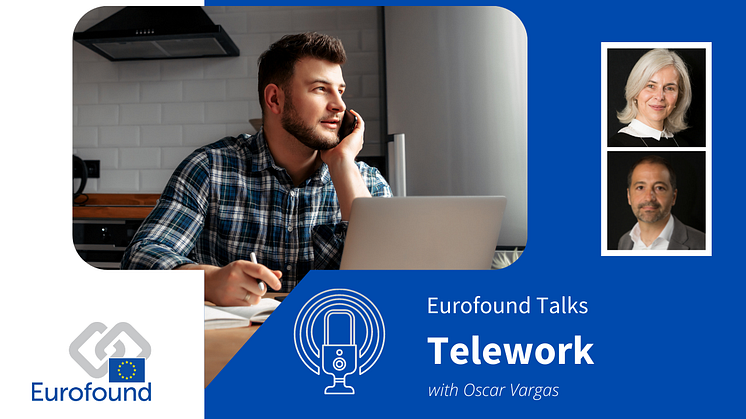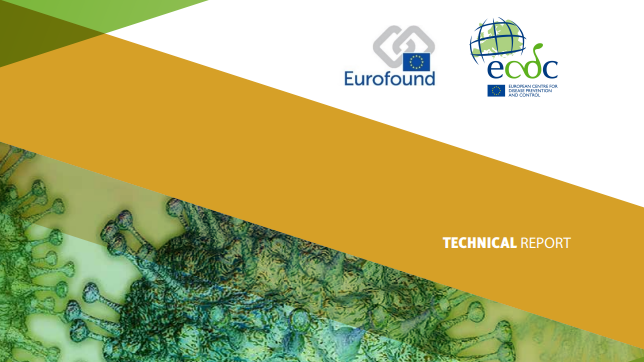
News -
Eurofound Talks Telework
41.7 million workers in the European Union teleworked in 2021, this is comparable to the size of the entire German workforce. The COVID-19 pandemic has transformed telework from being an issue that affected a relatively small proportion of the workforce to being an important aspect of working life for one in five workers.
The new episode of Eurofound Talks looks in-depth at telework, an issue that Eurofound has researched and monitored for decades and has become more central and prominent in the Agency’s priorities over the past few years. Mary McCaughey speaks with Research Manager Oscar Vargas about how telework kept many in employment during the pandemic and positively impacted the working lives of people across Europe, but also that such widespread change is not without consequence, and the mass shift to working from home and elsewhere has had impacts on work-life balance, working conditions, well-being, gender equality and care, among other issues.
Now that Europe moves beyond the COVID-19 pandemic, it is faced with a dilemma. Telework has worked well for many, helped them reconcile work and family life, and brought greater autonomy and flexibility. For others, almost the opposite has been the case, with greater work intensification, longer working hours, and greater exposure to psychosocial risks. Is it time to get back to the office? Is telework here to stay? Is hybrid work the solution?
Oscar and Mary use results from the Living, working and COVID-19 online surveys, the European Working Conditions Telephone Survey, and other analyses from Eurofound to investigate what the future holds for telework in Europe, whether the mass rollout of telework has been to the benefit of workers and businesses, and whether the teleworkability of jobs will become the key issue on the labour market in years to come.
This episode has been published in advance of Eurofound’s upcoming webinar Making telework work for everyone – lessons from the pandemic for a digital age. The webinar, which takes place on 6 December, will discuss the challenges and opportunities of the surge in telework, as well as the overall growth of telework and teleworkable jobs in the EU and what this means for workers, managers, companies and policymakers.
Listen to the episode:
Register for the webinar:
Sign up for the upcoming report:
Further information:






